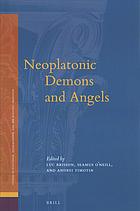Product desciption
Neoplatonic Angels And Demons Luc Brisson Seamus Oneill Andrei Timotin by Luc Brisson, Seamus O’neill, Andrei Timotin 9789004374973, 9789004374980, 9004374973, 9004374981 instant download after payment.
According to Sallustius, “the wider the gap is between our nature and
the first God, the more powers must be there between us and Him.”
Henri Dominique Saffrey has emphasised that there are two sides
to this propensity in Late Neoplatonism: “First of all, the tendency
to monotheism, which generates a supreme and first God, but confines
it as far away as possible from the grasp of intelligence and human knowledge;
this is the unknown god. Correlatively, between this inaccessible God and us,
the intermediaries (secondary gods, angels, demons and heroes) multiply, but
these are the agents of an ascension towards the first God.” The intermediaries
are theoretically necessary within the Neoplatonic theological system and their
raison d’être directly ensues from the absolute transcendence of the first principle,
an issue also notorious in all the presentations of reality having a processional
character - such as the wide variety of gnosticisms and Kaballahs. A thorough
understanding of the intermediaries´ nature and function is, therefore, one
of the major imperatives for the study of Neoplatonic theology.
An important reason for studying the notions of “angel” and “demon” together
is that they belong both to religious and philosophical vocabularies,
although demons admittedly have enjoyed a more prominent philosophical
career than have the angels. As a general characterization, one could say that
“demon” (δαίμων) designates, in the Greek religion, a kind of divinity, without
specific cult and mythology, distinct from the gods and the heroes, although δαί-
μων may be often understood as an equivalent term for θεός. It can refer to fate
(μοῖρα), to revenging spirits (Erinyes), or to the souls of the dead. The semantic
fluidity of the term is one of the reasons why the notion of the “demon”
became an important factor for the philosophical rationalisation of religion,
especially in Plato’s dialogues, but already in Pre-Socratic philosophy, and in
the Pythagorean and Stoic traditions. Plato defined the “demon” as an essentially
good middle-being between gods and humans (Symposium 202d–203a),
as a personal tutelary being (Republic 617d–e, 620d–e, Phaedo 107d), or as an
equivalent to the divine part of human soul, the νοῦς (Timaeus 90a–c).6 Plato’s
authority and influence were enormous in Middle- and Neoplatonism to such
an extent that the philosophical demonologies of Late Antiquity can be analysed
as an exegesis of his texts concerning “demons.”
In Neoplatonism, with which this volume deals specifically, this attempt
to interpret and explain Plato’s writings about demons is observed first in
Plotinus—as shown by the study of Thomas Vidart—, who tries to harmonise,
notably in Ennead III 4 [15], a series of Platonic references to the demons (especially
Republic 617d–e and Timaeus 90a–c) with the principles of his own philosophy.
Plotinus’ demonology is intertwined with his theory of the soul, but
Vidart shows the limits of Plotinus’ interest in demons, an attitude significantly
different than that of the Later Neoplatonists.
Porphyry seems to have been the first Neoplatonic philosopher to assign
demons a specific place within a complex theological system. Luc Brisson
accurately defines this place by reconstructing the Porphyrian theology and
by highlighting its debt to Plotinus and, of course, to Plato.


